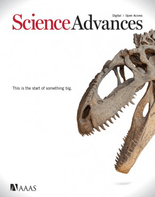
Science Advances
Scope & Guideline
Elevating Research, Empowering Minds
Introduction
Aims and Scopes
- Analytical Techniques and Methodologies:
The journal emphasizes the development and application of advanced analytical techniques, including mass spectrometry, chromatography, and spectroscopy, to address complex scientific problems. - Metabolomics and Proteomics:
A core area of focus is on metabolomics and proteomics, exploring the biochemical processes in living organisms and their implications in health, disease, and environmental interactions. - Environmental and Food Safety:
Research on food safety, environmental monitoring, and contamination detection is a consistent theme, highlighting the journal's commitment to public health and sustainability. - Nanotechnology and Material Science:
The journal publishes studies on nanomaterials and their applications in various fields, including drug delivery, sensors, and catalysis, showcasing cutting-edge research in material science. - Interdisciplinary and Innovative Applications:
Science Advances promotes interdisciplinary research that combines elements from different scientific fields, encouraging innovative applications of analytical techniques in diverse areas such as forensic science, clinical diagnostics, and agricultural studies.
Trending and Emerging
- COVID-19 Related Research:
The journal has seen an increase in studies related to COVID-19, including predictive modeling and detection methods, illustrating a timely response to global health challenges. - Bioactive Compounds and Natural Products:
Research on the extraction and application of bioactive compounds from natural sources, such as plants and microorganisms, is trending, indicating a growing interest in sustainable and health-promoting substances. - Advanced Data Analysis and Machine Learning:
There is a rising focus on integrating machine learning and advanced data analysis techniques in analytical sciences, showcasing the importance of computational methods in improving analytical accuracy and efficiency. - Microfluidics and Miniaturization:
The application of microfluidic technologies for analytical purposes is gaining traction, particularly for food safety and biomedical applications, reflecting a trend towards miniaturized, efficient analytical systems. - Environmental and Ecotoxicological Studies:
Increasing publications on the environmental impact of chemicals and ecotoxicology indicate a trend towards addressing environmental sustainability and public health concerns.
Declining or Waning
- Traditional Chromatography Techniques:
There has been a noticeable decrease in the publication of studies focused solely on conventional chromatography methods, as researchers increasingly adopt more advanced and efficient techniques. - Basic Analytical Method Reviews:
The frequency of publication for general reviews on basic analytical methods has waned, suggesting that the journal is shifting towards more specialized or novel applications of these methods. - Single-Discipline Studies:
Research centered on single-discipline approaches, particularly in chemistry without interdisciplinary connections, appears to be declining as the journal seeks to promote more integrated and collaborative studies.
Similar Journals

TALANTA
Advancing the Frontiers of Analytical ChemistryTALANTA, published by Elsevier, is a premier international journal that serves as a vital platform in the field of analytical chemistry. Since its inception in 1958, TALANTA has provided a comprehensive forum for the dissemination of groundbreaking research and developments in chemical analysis, spanning a wide array of topics including biochemistry and spectroscopy. With an impressive impact factor and ranking in the Q1 quartile within its category for 2023, it is ranked #12 out of 156 journals in Analytical Chemistry by Scopus, placing it among the most influential journals in its field. Researchers, professionals, and students benefit from its stringent peer-review process and high-quality content that drives advancements in analytical methodologies and applications. TALANTA's commitment to fostering innovation and excellence in research makes it an indispensable resource for anyone at the forefront of scientific inquiry.

LCGC North America
Connecting Researchers, Professionals, and Students in ChemistryLCGC North America is a pivotal resource in the field of Analytical Chemistry, published by MJH Life Sciences. Since its inception in 1999, the journal has strived to bridge the gap between scientific research and practical applications, catering to a diverse audience that includes researchers, professionals, and students interested in chromatography and related analytical practices. Although currently categorized in the Q4 quartile of Analytical Chemistry, with a Scopus rank of #137 out of 156, LCGC North America is dedicated to delivering insightful articles that foster discussion and innovation within the analytical chemistry community. With a commitment to quality content, the journal covers a broad spectrum of topics, ensuring that readers remain informed about the latest developments and trends in the field. Despite its non-open access model, readers can access its valuable resources through institutional subscriptions and various library networks, making it a vital asset for those engaged in cutting-edge research and practice. Located in Cranbury, NJ, United States, LCGC North America continues to contribute significantly to the advancement of analytical methodologies and technologies.
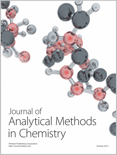
Journal of Analytical Methods in Chemistry
Advancing analytical excellence in chemistry.The Journal of Analytical Methods in Chemistry, published by HINDAWI LTD, stands as a premier platform dedicated to the dissemination of research in the vibrant field of analytical chemistry. With an ISSN of 2090-8865 and an E-ISSN of 2090-8873, this Open Access journal has been committed to providing unrestricted access to quality research since 1978, thereby fostering greater collaboration and innovation among researchers, professionals, and students globally. The journal showcases rigorous research insights spanning diverse categories, earning impressive Scopus rankings including Q2 in Chemical Engineering and Q3 in Analytical Chemistry for 2023, positioning itself effectively among respected peers. Its interdisciplinary approach also covers significant contributions in the realms of instrumentation and computer science applications, thus addressing contemporary challenges and advancements in analytical methodologies. By bridging theoretical underpinnings with practical applications, the Journal of Analytical Methods in Chemistry aims to catalyze knowledge exchange while enhancing the global discourse in analytical science.
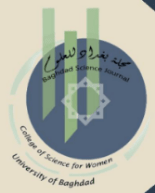
Baghdad Science Journal
Championing Open Access for Scientific ExcellenceThe Baghdad Science Journal (ISSN: 2078-8665, E-ISSN: 2411-7986), published by the COLL SCIENCE WOMEN, UNIVERSITY OF BAGHDAD, is a pivotal peer-reviewed open-access journal dedicated to a diverse array of scientific disciplines. Since its inception in 2004, it has established itself as a leading platform for disseminating innovative research in areas including Agricultural and Biological Sciences, Biochemistry, Genetics and Molecular Biology, Chemistry, Computer Science, Mathematics, and Physics. The journal has consistently achieved commendable rankings in the Scopus database, reflecting its commitment to quality and relevance in academic research. With a Q2 classification in Agricultural and Biological Sciences and Q3 classifications in several other categories as of 2023, the journal has become an invaluable resource for researchers, professionals, and students eager to contribute to scientific advancement. Based in Iraq, the Baghdad Science Journal serves as a bridge for global scientific communication, encouraging collaboration and providing access to groundbreaking discoveries.
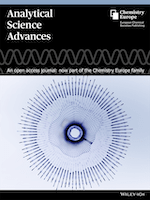
Analytical Science Advances
Unveiling Insights in Analytical Techniques and InstrumentationAnalytical Science Advances is a dynamic journal published by WILEY, dedicated to the ever-evolving field of analytical chemistry. With an ISSN of 2628-5452, this open-access platform aims to disseminate high-quality research and insightful reviews that push the boundaries of analytical methodologies and instrumentation. Since its inception in 2020, the journal has gained traction, securing a commendable Q2 ranking in 2023 within its category, highlighting its significance in the scientific community. Currently positioned at Rank #68 out of 156 in Scopus' analytical chemistry category, it boasts a 56th percentile ranking, reflecting its contributions to advancing analytical techniques. Researchers, professionals, and students will find this journal an invaluable resource for keeping abreast of the latest developments, emerging technologies, and innovative approaches in analytical science, ensuring the journal's relevancy and influence in shaping future discoveries.
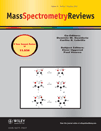
MASS SPECTROMETRY REVIEWS
Transforming Knowledge in Mass SpectrometryMASS SPECTROMETRY REVIEWS, published by Wiley, is a premier academic journal dedicated to advancing the field of mass spectrometry and its applications across a multitude of scientific disciplines. With an ISSN of 0277-7037 and an E-ISSN of 1098-2787, the journal has established itself as a vital resource within the realms of Analytical Chemistry, Biochemistry, Genetics, Condensed Matter Physics, and Spectroscopy, achieving Q1 status across these categories in 2023. As a testament to its significant contribution to scholarly research, it boasts impressive Scopus rankings, including a rank of #2 out of 76 in Chemistry - Spectroscopy and #4 out of 156 in Chemistry - Analytical Chemistry, placing it in the 97th percentile and above. Emphasizing high-quality, peer-reviewed research, MASS SPECTROMETRY REVIEWS serves as an essential platform for researchers, professionals, and students aiming to stay abreast of cutting-edge developments and methodologies in mass spectrometry. The journal is committed to fostering a deeper understanding of mass spectrometric techniques while also contributing to interdisciplinary advancements, making it a valuable addition to any academic library. Authors seeking to disseminate their work in a journal with a strong reputation and impact in the scientific community will find MASS SPECTROMETRY REVIEWS an ideal venue.

ANALYTICAL AND BIOANALYTICAL CHEMISTRY
Exploring Breakthroughs in Analytical ScienceANALYTICAL AND BIOANALYTICAL CHEMISTRY, published by SPRINGER HEIDELBERG, is a leading international journal that serves as a vital platform for innovative research in the fields of analytical and bioanalytical chemistry. With an impressive impact factor and ranking in the Q2 category for both Analytical Chemistry and Biochemistry, the journal highlights key advancements and methodologies that drive the discipline forward. Established in 1996 and continuing vigorously into 2024, it has gained significant recognition with Scopus rankings placing it in the 83rd and 78th percentiles within its categories, underscoring its impact and relevance. The journal's commitment to open access facilitates widespread dissemination of critical scientific knowledge, making it an essential resource for researchers, professionals, and students dedicated to exploring the complexities of chemical analysis. With its base in Heidelberg, Germany, ANALYTICAL AND BIOANALYTICAL CHEMISTRY continues to inspire and influence the global research community.
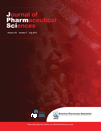
JOURNAL OF PHARMACEUTICAL SCIENCES
Exploring the frontiers of pharmacology and toxicology.The JOURNAL OF PHARMACEUTICAL SCIENCES, published by ELSEVIER SCIENCE INC, stands as a cornerstone in the field of pharmaceutical sciences, offering a platform for innovative research and advancements since its inception in 1961. With an impressive Scopus Rank of #36 out of 183 in the Pharmaceutical Science category, this journal is recognized for its commitment to disseminating high-quality, peer-reviewed studies that significantly contribute to the realms of pharmacology, toxicology, and pharmaceutics. Holding a 2023 Q2 category quartile, it attracts a diverse readership encompassing researchers, industry professionals, and students eager to advance their understanding and expertise. While the journal is not open access, it ensures valuable insights in every issue, making it an essential resource for those dedicated to the evolving landscape of pharmaceutical research. With an impact factor that reflects its relevance and influence, the JOURNAL OF PHARMACEUTICAL SCIENCES continues to shape the discourse in its domain, fostering innovation and collaboration among scholars worldwide.
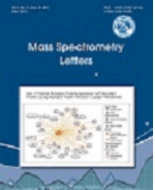
Mass Spectrometry Letters
Unveiling the Future of Mass Spectrometry Research.Mass Spectrometry Letters is a pioneering open-access journal published by the Korean Society for Mass Spectrometry, specializing in the diverse fields of analytical chemistry, biochemistry, and spectroscopy. Established in 2010, this journal aims to disseminate groundbreaking research and advancements in mass spectrometry and its applications across various scientific domains. Though currently categorized in the Q4 quartile in key analytical fields, Mass Spectrometry Letters serves as an essential platform for researchers, professionals, and students to share innovative methodologies, emerging trends, and practical applications of mass spectrometry, thus fostering collaboration and advancing knowledge in the scientific community. With a commitment to open access, articles published since 2010 are readily available, enabling widespread distribution and engagement within the international research community. Located in Daejeon, South Korea, and actively converging research through 2024, the journal holds the potential to grow its impact and relevance within the dynamic landscape of mass spectrometry.

CHINESE JOURNAL OF ANALYTICAL CHEMISTRY
Pioneering Innovations in Analytical TechniquesCHINESE JOURNAL OF ANALYTICAL CHEMISTRY, published by SCIENCE PRESS in China, stands as a prominent platform in the field of analytical chemistry since its inception in 1989. With its ISSN 0253-3820 and E-ISSN 1872-2040, the journal maintains a vital role in disseminating empirical research and innovative methodologies, contributing to the advancement of analytical techniques and their applications. The 2023 Scopus ranking positions the journal in the third quartile (Q3) within its category, reflecting a respectable standing among its peers. Researchers, professionals, and students alike engage with a broad range of topics, from instrumental analysis to environmental monitoring, each aiming to foster further scientific inquiry. Although it does not currently offer Open Access, the journal's rich repository of knowledge continues to be an essential resource for those in the analytical chemistry community, with an enduring commitment to scientific excellence and collaboration.